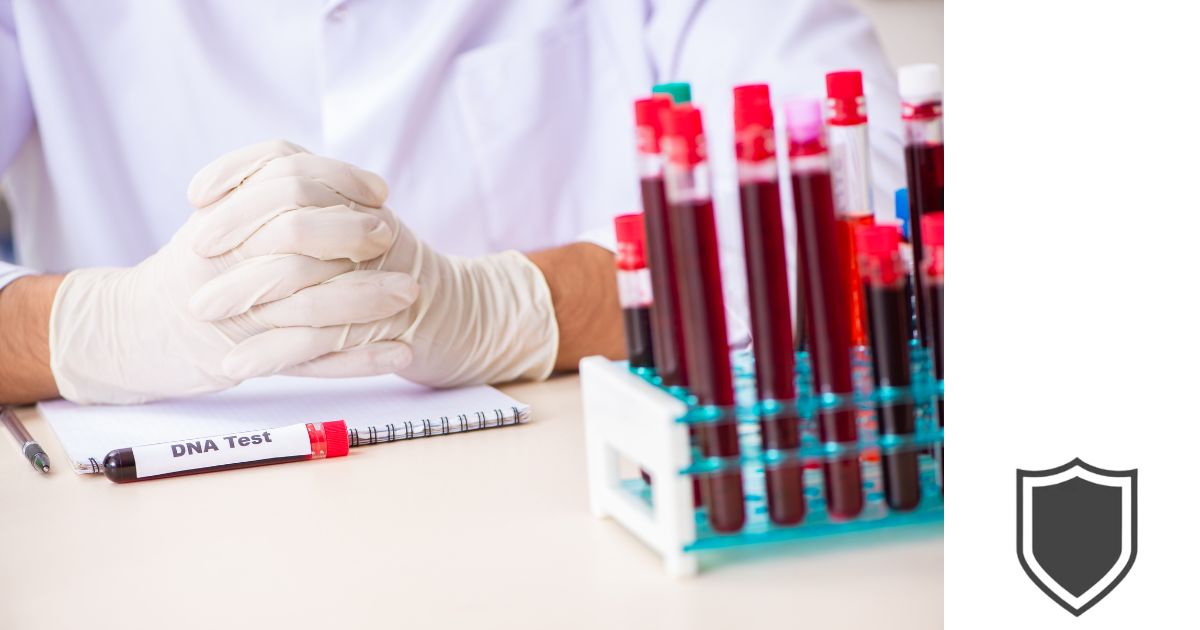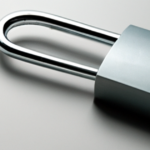Hello everyone, I’m Dr. Edward Baldwin, and in today’s discussion, we’ll be delving into a topic that is inherently important to every one of us. We’re going to take a closer look at the privacy concerns associated with Ancestry DNA, a critical subject in a time when just a simple saliva sample can unravel parts of our ancestral past.
While the insights gleaned from DNA testing can be fascinating, they also raise significant privacy concerns. Your genetic information is the blueprint of your existence, and its protection is paramount. In this article, we’re going to dissect the layers of privacy surrounding your DNA data when you embark on an ancestry exploration journey.
From understanding what happens to your sample after it’s sent off to a lab, to knowing your rights and options for data protection, we’re covering it all. Whether you’re a genealogy enthusiast or just curious about your roots, being informed about DNA privacy is crucial. So, let’s embark on this journey together, ensuring that your genetic information remains both a window to your past and a safeguarded asset for your future.
Table of Contents
Understanding Ancestry DNA Testing

In exploring our roots, Ancestry DNA tests serve as a tool to uncover the heritage and genetic connections that shape who I am.
The Basics of Ancestry DNA Tests
Ancestry DNA tests analyze my genetic code to help determine where my ancestors came from and how they might be connected to other individuals or populations. Typically, the process involves collecting a DNA sample, often through a saliva swab or a cheek scrape, which I would then send to a lab for analysis. Results provide insights into ethnic backgrounds, and with some services, can offer matches to potential relatives who have also taken the test.
Types of DNA Tests for Ancestry
There are primarily three types of DNA tests used to explore ancestry:
- Autosomal DNA Tests: This is the most common test and examines the 22 pairs of chromosomes not involved in determining a person’s sex.
- Y-DNA Tests: Only carried out on the Y chromosome, this test can only be taken by someone with a Y chromosome (typically males) to trace paternal lineage.
- Mitochondrial DNA (mtDNA) Tests: Both males and females can take this test, but it will only provide information about the maternal lineage, as mtDNA is passed from a mother to her children.
Each test offers different pieces of the ancestral puzzle and can help paint a fuller picture of my family history.
Privacy Concerns in Ancestry DNA Testing

When I consider the privacy implications of Ancestry DNA testing, a few critical points come to my mind: securing sensitive genetic data, the potential for data breaches, understanding the consent process, and options to maintain anonymity.
Data Security and Privacy Policies
My DNA contains sensitive information, and I naturally expect it to be well-protected. AncestryDNA test providers claim to prioritize privacy, stating that they use a range of safeguards to secure my genetic data. These policies are crucial because they dictate how my information is stored, used, and potentially shared.
Risks of DNA Data Breaches
Despite robust security measures, the risk of data breaches can never be completely eliminated. My DNA data could become exposed due to unauthorized access, making it a significant privacy concern. It’s essential to be aware of this risk when submitting DNA for testing.
Informed Consent and Privacy
Informed consent is about my understanding of what I’m agreeing to when I take a DNA test. It’s my responsibility to read and grasp the privacy terms to know how my genetic information might be used, which can include research or sharing with third parties.
Anonymity Options in Testing
To increase privacy, I look for options that allow me to use the testing service anonymously. Some DNA testing services enable me to hide my full ethnicity profile from connections unless we share common ancestry regions. It gives me a layer of privacy regarding who can see my detailed genetic information.
Managing Your DNA Data

When it comes to handling my Ancestry DNA data, I prioritize my privacy and control. Below, I’ll guide you through how to access, delete, and manage the sharing of your DNA data—ensuring that your genetic information is handled according to your preferences.
Accessing Your Ancestry DNA Data
My Ancestry DNA data is personal and sensitive; hence, I make sure to regularly review my privacy settings. To view my DNA results and manage privacy, I follow these steps:
- Go to the DNA tab at the top of the AncestryDNA page.
- Select Your DNA Results Summary.
- Click on Settings, then choose the test under Privacy and Test Management sections.
This gives me control over whether I want to be visible to my DNA matches and how my data is used on the platform.
Deleting Your DNA Data
I understand that there might be times when I wish to remove my DNA data entirely from the Ancestry database. When I decide to delete my DNA data, it involves:
- Navigating to the DNA settings page.
- Selecting Delete Test Results, which leads to the removal of my genetic information, including ethnicity estimates and genetic relative matches.
Remember, once I delete my DNA data, Ancestry warns that this action is irreversible, and I won’t be able to retrieve my genetic information.
Data Sharing with Third Parties
AncestryDNA offers options regarding whether I want to have my DNA information shared with third parties. It’s crucial for me to precisely
Legal Aspects of Ancestry DNA Data

When it comes to Ancestry DNA data, the legal framework governing ownership and law enforcement access is complex and varies by jurisdiction. I’ll discuss who actually owns the DNA data and how it can be accessed by law enforcement, which are two key legal considerations in the context of genetic testing and privacy.
Ownership of DNA Data
Legally, when I submit my DNA to an ancestry testing service, I may still own the physical DNA sample, but the genetic information derived from it is often controlled by the company. Policies can differ, but typically, I have to agree to certain terms and conditions before the company processes my sample. It’s crucial for me to read and understand these terms, as they usually dictate how my genetic data may be used or shared.
Law Enforcement Access to DNA Data
Another important legal aspect is how my DNA data may be accessed by law enforcement agencies. While policies can be stringent, there are conditions under which law enforcement can request access to my genetic information, often to help identify suspects of crimes or to locate missing persons. This usually requires a legal process, such as a court order or a subpoena, and I should be aware that my genetic information could potentially be used in these ways.
- Court Order: Agencies may need to provide a court order to access my DNA data for a criminal case.
- Subpoena: There may be instances where a subpoena is issued to obtain my data.
In either case, the company’s transparency report should detail the number and nature of law enforcement requests they have received, which gives me an idea of how often such data sharing happens.
Ethical Considerations

When we talk about genetic testing for ancestry, it’s not just about tracing lineage. It brings up intense ethical questions, particularly surrounding privacy and the handling of sensitive genetic information.
Ethical Implications of Genetic Testing
Genetic testing has revolutionized the way I understand my family tree and ethnic background. However, the ethical implications are significant:
- Consent and Autonomy: I have the right to know what happens with my DNA data. Laws like HIPAA and GINA are in place to ensure I’m not discriminated against based on my genetic information, but there’s more to it.
- Data Protection: The protection of my genetic data from unauthorized access or breaches is paramount. I need assurances that robust technical and ethical safeguards are in place.
Family Secrets and Unexpected Results
Delving into my ancestry through DNA can uncover surprises that might affect my family dynamics:
- Emotional Preparedness: Discovering unexpected relatives or health information requires me to be emotionally prepared for the repercussions.
- Family Privacy: If I uncover family secrets, the privacy of others may be at stake. It is crucial to navigate these findings with respect and discretion.
The Last Word
And there we have it – a deep dive into the world of genetic exploration and the paramount importance of safeguarding our most intimate data. This isn’t just a guide; it’s a call to awareness in an era where our biological data can unlock vast knowledge.
As we close this chapter, remember that while exploring your ancestry can be a journey of discovery, ensuring the privacy of your genetic information is a journey of protection. Treat your DNA data with the same care and vigilance as you would any other private information. Stay informed about the policies of DNA testing companies, understand your rights, and take proactive steps to control and protect your genetic blueprint.
Your DNA tells a story stretching back generations. It’s a narrative woven into the very fabric of your being. As you explore this story, make sure it’s told on your terms, safeguarded by the shield of privacy. Here’s to exploring our past with the confidence that our genetic tales are preserved for the future, securely and privately. Stay curious, stay informed, and most importantly, stay safe on this incredible journey of self-discovery.
Ancestry DNA Privacy FAQs

In this section, I’ll address common queries about AncestryDNA’s privacy practices. These topics are important as they relate to the use and protection of your genetic data.
What does Ancestry do with your DNA after testing?
After testing, Ancestry stores your DNA data to provide ongoing services and updates to your ancestry information. They continuously refine features, such as ethnicity estimates and identifying new familial connections.
How can I ensure my AncestryDNA results remain confidential?
To keep your AncestryDNA results private, it’s crucial to review your privacy settings. Ancestry allows you to control who sees your genetic information—make sure you’ve set these according to your comfort level.
Can I use AncestryDNA services while maintaining my anonymity?
Yes, I can. Ancestry offers the option to use a username instead of my real name and provides privacy settings to further obscure my identity, if I choose.
Does Ancestry sell personal DNA information to third parties?
Ancestry states that they do not sell DNA data to insurers, employers, or third-party marketers without consent. Any sharing of data outside of this policy would typically require explicit permission from me, the user.
How do I keep my AncestryDNA results private?
I can keep my AncestryDNA results private by adjusting my sharing preferences in the Member Profile section, allowing me to manage what I share and with whom.
What measures does Ancestry take to protect DNA data from law enforcement access?
Ancestry has a strict policy in place regarding law enforcement requests. They require valid legal documents like a warrant or subpoena, and publish transparency reports detailing the frequency and type of law enforcement requests they’ve received and responded to.
- Amazon Email Phishing: How to Identify and Avoid Scams - May 11, 2025
- Malwarebytes vs McAfee: Decoding the Ultimate Antivirus Battle - May 11, 2025
- Best Antivirus for Windows 10: Expert Recommendations for 2023 - May 11, 2025









